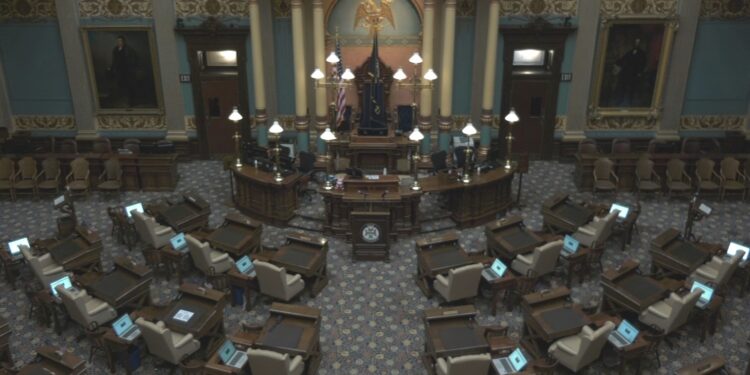LANSING, Mich. (WZMQ) — In this election, all 110 members of Michigan’s House of Representatives are up for reelection. Many incumbents around the state are expected to keep their seats but a handful of races could determine who holds the majority moving forward.
Democrats currently hold control of Michigan’s House of Representatives by just two seats. The party has been paying special attention to a handful of districts to keep that majority this fall.
The director of Michigan State University’s Institute for Public Policy, Matt Grossmann, said these house seats will be impactful when it comes to the future productivity of the legislature.
When it comes to rural michigan, Marquette and Traverse City’s representatives are both currently Democrats, but eyes will be on both races as districts where Republicans could win, giving them control of the House.
“That means that the chamber is likely to be quite close in a battle for control.” Grossmann said “It would mean sort of the end of an era of the democrats being able to set policy on their own without help from republicans. and that probably means changes to the budget and changes to what kinds of policies are enacted next year.”
The shift in power to a Republican-run House could mean more work for representatives who will have to work harder to find compromises. Democrats still hold control of the Senate and the Governor’s office, so House Republicans would still have to work closely with Democrats to get any legislation passed.
A Democrat has held Marquette’s seat since 1989. Jenn Hill is running for reelection against republican Karl Bohnak who has gained a lot of support in more rural parts of the district.
Downstate, many of the races in the Detroit Metropolitan Area are also expected to be close. The city of Detroit is solidly Democrat, but as you enter the surrounding suburbs there is more potential for districts that could be a toss-up for the parties. In most cases, the way a district votes for president is a good indicator of how it will vote in other elections.
“If people look back to the elections in the 1990s, Bill Clinton won a lot of support in the U.P. and throughout it, it wasn’t just concentrated in the most urban areas,” Grossmann said. “Now we have a very urban-rural split in Michigan as a whole in both peninsulas. That means that something like a state House district is really about the level at which Democrats are still competing.”
The national democratic legislative campaign committee endorsed 13 candidates, donating $500,000 to House Democrats’ campaigns, many in the greater Metro Detroit area in northern Macomb and Oakland counties, and the downriver area.
Because either party is expected to hold a majority by only a couple of seats, the outcomes in just 4 or 5 of the 110 districts will determine control. As the first election since Democrats took over the legislature and the governor’s offices, this election will also be voters’ first chance to weigh in on how they feel about the past two years of democrat control.









